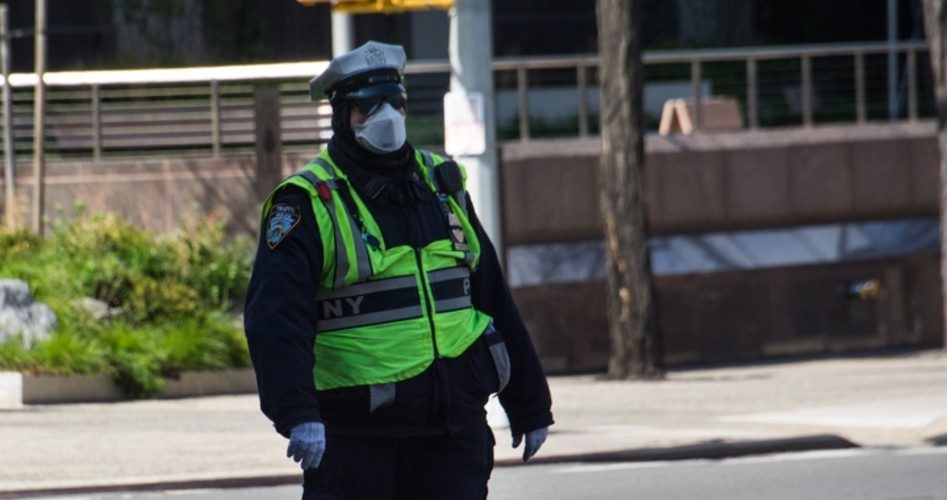
The outrage that followed the publishing of a video of a woman’s rough arrest for not properly wearing a face mask on Wednesday morning led to a change in police policy. At a press briefing on Friday New York Mayor Bill de Blasio said:
NYPD will continue to enforce the ban on non-essential gatherings, prioritizing dispersing groups of 6+ adults. Absent a serious danger to the public, NYPD will not take enforcement action for failing to wear face covering[s].
This was not an apology. Nor was his comment on Wednesday night when he tweeted: “Face coverings are important to protect everybody – they’re not optional. But no one wants to see an interaction turn into this. We’ve made progress with de-escalation. This isn’t it.”
The department defended itself: “We are confident that the police officers in this incident acted appropriately and with respect. This individual was arrested only after her behavior toward officers warranted police action.”
The reader can decide for himself by watching the video below.
The question remains: What is the efficacy of wearing face masks to fend off the virus and “flatten the curve”? David Brownstein, a board-certified family physician and Medical Director of the Center for Holistic Medicine in West Bloomfield, Michigan, raised the question back in April.
After reviewing the available literature on the subject he concluded:
It should be well known that cloth masks, bandanas, or handkerchiefs will do very little to stop the spread of coronavirus. In fact, they may actually increase your risk of becoming ill from corona and other influenza-like illnesses….
Regular surgical masks are not much better.
Dr. Russell Blaylock, a board-certified neurosurgeon and author of The Blaylock Wellness Report, went further, confirming Brownstein’s conclusions and then listing the sources that backed up his claim. He wrote:
It is evident from this review that there is insufficient evidence that wearing a mask of any kind can have a significant impact in preventing the spread of this virus….
One should not attack and insult those who have chosen not to wear a mask, as these studies suggest that is the wise choice to make.
Two days after Blaylock’s article was published, Dr. Gary Kohls, a retired physician from Duluth Minnesota, summed up Blaylock’s findings. The use of masks in many patients can easily:
Cause hypoxia in some patients;
Cause hypercapnia [a buildup of carbon dioxide in the bloodstream] in some patients;
Impair one’s immunity; and
Increase the concentration of potentially harmful viruses in the nasal passages.
An Ivy League graduate and former investment advisor, Bob is a regular contributor to The New American primarily on economics and politics. He can be reached at [email protected].
Photo: Robi_J/iStock Editorial/Getty Images Plus




